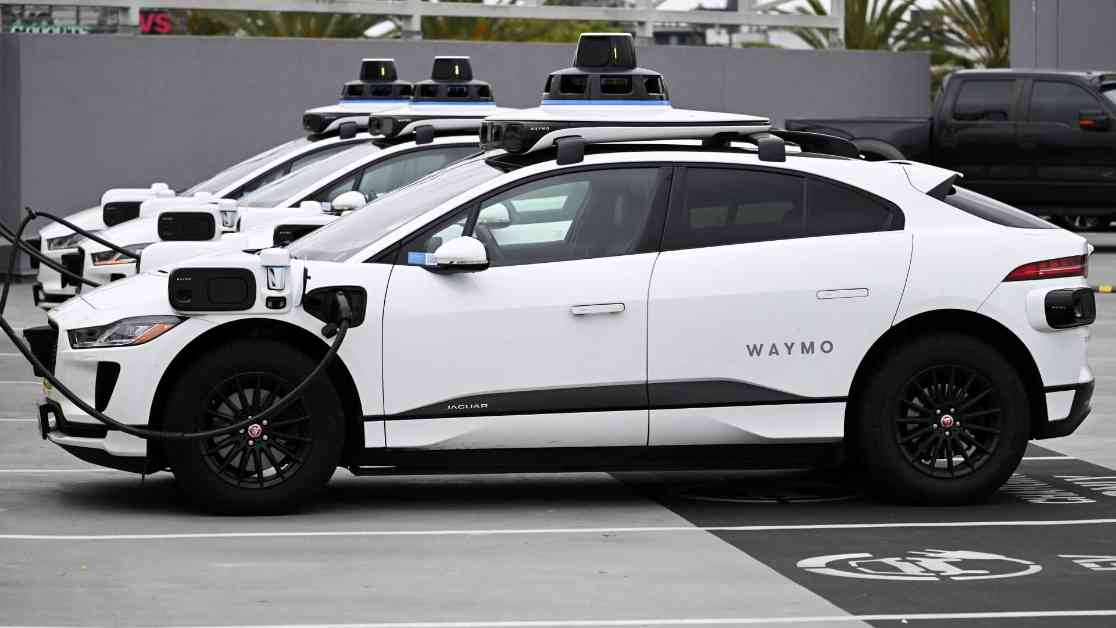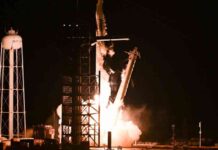Uber and Waymo, two major players in the autonomous vehicle industry, have announced an exciting partnership that will bring driverless ride-hailing trips to Austin, Texas, and Atlanta starting in early 2025. This collaboration marks a significant step forward in the development of autonomous transportation services and offers a glimpse into the future of urban mobility.
Expanding the Partnership
Uber’s decision to expand its partnership with Alphabet’s Waymo is a strategic move aimed at enhancing its autonomous vehicle strategy and staying competitive in the rapidly evolving transportation market. The collaboration will allow Uber riders in Austin and Atlanta to be matched with a driverless Waymo car for certain trips, providing them with a convenient and innovative transportation option.
The news of the partnership sent shares of Uber soaring by 5%, indicating investor enthusiasm for the company’s autonomous vehicle initiatives. Similarly, Alphabet’s stock rose by about 1%, reflecting the positive market reception to the collaboration. This partnership underscores the growing importance of autonomous technology in the transportation industry and the potential for driverless vehicles to revolutionize urban mobility.
The Impact on Market Share
The expansion of the Uber-Waymo partnership may also have implications for market share dynamics in the ride-sharing industry. As Waymo continues to increase its presence in key markets like San Francisco and Los Angeles, Uber faces pressure to maintain its competitive edge and retain its customer base. The partnership in Austin and Atlanta is a strategic move by Uber to strengthen its position in the autonomous vehicle space and fend off competition from other players like Tesla.
An analysis from Bernstein revealed that Waymo’s paid robotaxi trips in San Francisco accounted for approximately 2% of ride-sharing usage as of May 2024. Since then, Waymo has doubled its weekly paid rides to 100,000, signaling the company’s rapid growth and expanding market presence. By partnering with Waymo, Uber aims to leverage the technology and expertise of a leading autonomous vehicle developer to enhance its service offerings and attract more riders.
Building on Success
Uber CEO Dara Khosrowshahi expressed enthusiasm about the expanded partnership with Waymo, highlighting the positive impact of autonomous trips on riders in Phoenix. The successful collaboration between Uber and Waymo in Phoenix paved the way for the expansion into Austin and Atlanta, offering riders in these cities access to cutting-edge autonomous transportation services. The partnership represents a significant milestone in the development of driverless ride-hailing trips and underscores the potential for autonomous technology to transform the way people move around cities.
Waymo co-CEO Tekedra Mawakana echoed Khosrowshahi’s sentiments, emphasizing the comfort, convenience, and safety that the Waymo Driver brings to riders. The positive feedback from Waymo One riders in Phoenix has laid the foundation for the expansion into new markets, where autonomous vehicles are becoming an increasingly viable and popular transportation option. The collaboration between Uber and Waymo is a testament to the power of innovation and partnership in driving the future of mobility.
Challenges and Opportunities
While the Uber-Waymo partnership represents a significant step forward in the development of autonomous transportation services, it also comes with its own set of challenges and opportunities. Uber’s decision to sell off its self-driving division in 2020 and rely on partnerships with companies like Waymo, GM’s Cruise, and Wayve reflects the complexities of navigating the autonomous vehicle landscape. By collaborating with industry leaders like Waymo, Uber aims to leverage their expertise and technology to accelerate the adoption of autonomous vehicles and enhance the overall rider experience.
However, the partnership with Cruise raised concerns among investors, as Cruise has faced safety challenges in the past. The skepticism surrounding the partnership underscores the importance of ensuring the safety and reliability of autonomous vehicles, as well as addressing any potential regulatory and ethical issues that may arise. As Uber continues to expand its presence in the autonomous vehicle space, it will need to demonstrate its commitment to safety, innovation, and customer satisfaction to maintain its competitive edge in the market.
Looking Ahead
The expansion of the Uber-Waymo partnership into Austin and Atlanta represents a significant milestone in the development of autonomous transportation services and highlights the growing importance of driverless technology in the ride-sharing industry. As Waymo continues to innovate and expand its robotaxi services in key markets, Uber’s collaboration with the company positions it as a key player in the autonomous vehicle space and reinforces its commitment to delivering cutting-edge transportation solutions to riders.
In conclusion, the Uber-Waymo partnership marks a significant development in the autonomous vehicle industry and underscores the transformative potential of driverless technology in urban mobility. By expanding their collaboration into new markets and offering driverless ride-hailing trips to riders in Austin and Atlanta, Uber and Waymo are paving the way for a future where autonomous vehicles are an integral part of everyday transportation. As the autonomous vehicle landscape continues to evolve, partnerships like the one between Uber and Waymo will play a crucial role in shaping the future of mobility and revolutionizing the way people get around cities.






















